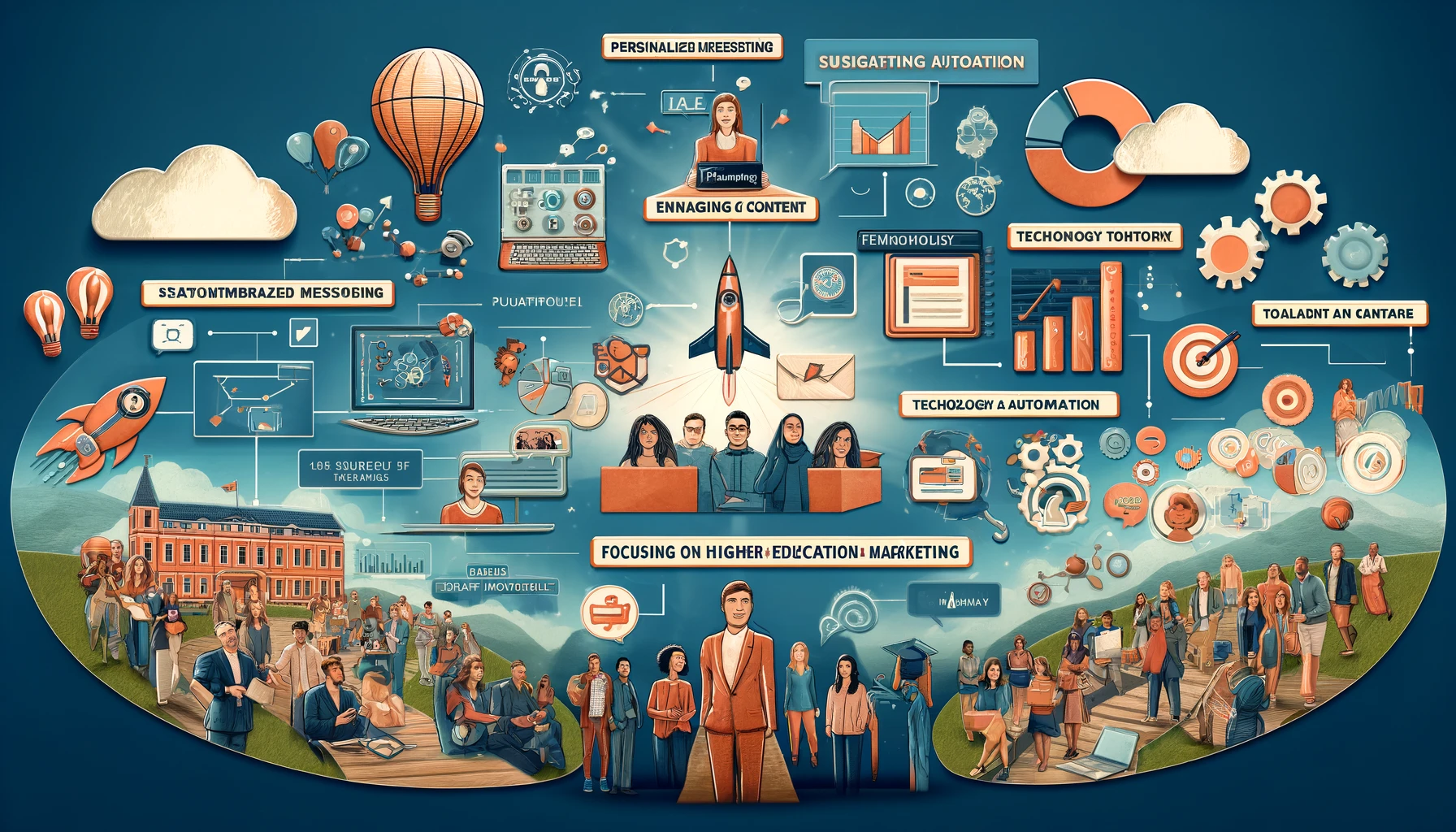Common themes:
- Importance of personalization and tailored content.
- Leveraging technology and automation.
- Engaging content and storytelling.
- Data analysis for optimization.
- Collaboration and partnerships.
- Emphasizing student journey and experience.
Surprising points:
- AI-driven search impacting university marketing.
- User-generated content significantly influences brand loyalty.
- Importance of ethics and human oversight in AI implementations.
- Use of AI chatbots like UN’s Hansei for increased engagement.
- The role of multimedia elements in admissions processes.
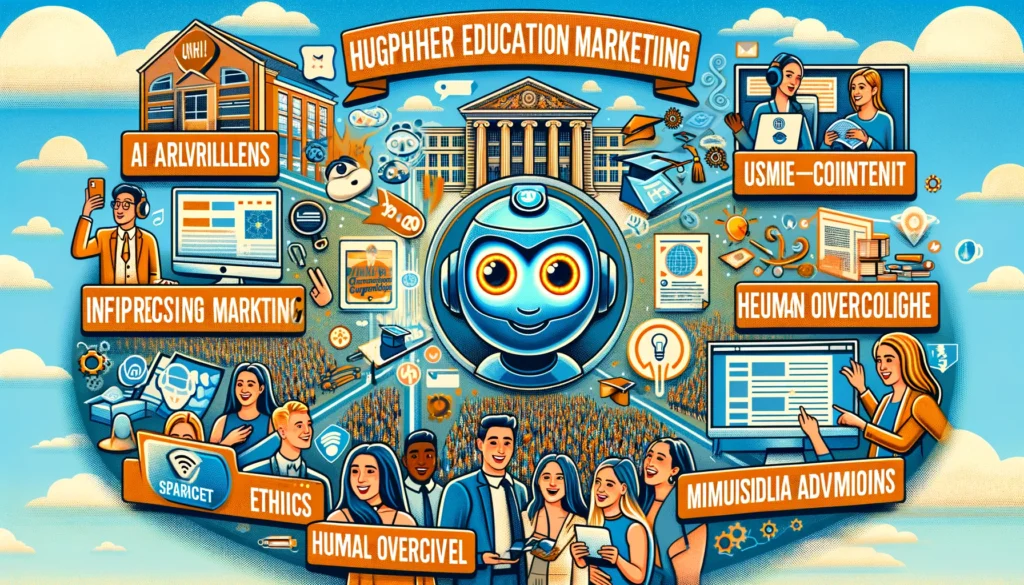
Designing a High-Converting Admissions Funnel from Prospect to Student
Higher Education Marketing
Summary:
This article explores the process of designing an admissions funnel that converts prospects into students in higher education institutions. It emphasizes the importance of understanding the student journey and implementing effective strategies at each stage of the funnel. The author discusses various tactics, such as personalized messaging, engaging content, and streamlined application processes, to improve conversion rates. Examples of successful funnel design and techniques are provided, along with best practices for creating a seamless enrollment experience. The article also highlights the significance of data analysis and tracking to identify areas of improvement in the admissions process.
Key Points:
- Understanding the admissions funnel:
- Importance of grasping the student journey.
- Identifying different stages of the funnel: prospect, inquiry, application, acceptance, enrollment.
- Crafting personalized messaging:
- Segmenting prospects based on demographics, interests, and behaviors.
- Tailoring content to address specific pain points and motivations.
- Creating engaging content:
- Utilizing storytelling techniques to connect with prospects emotionally.
- Incorporating multimedia elements like videos, virtual tours, and testimonials.
- Streamlining the application process:
- Simplifying online application forms.
- Providing clear instructions and guidance.
- Leveraging technology and automation:
- Using CRM systems to track prospect interactions and communications.
- Integrating automated follow-up processes for nurturing leads.
- Analyzing data for optimization:
- Utilizing analytics to measure performance at each stage of the funnel.
- Identifying bottlenecks and areas for improvement.
- Best practices and success stories from higher education institutions.
Noteworthy Positions:
- The article suggests the use of personalized messaging and engagement techniques to enhance conversion rates.
- The author promotes the use of data analysis and tracking to optimize the admissions process.
- The importance of storytelling and multimedia content in connecting with prospects is emphasized.
Takeaways:
- Designing an effective admissions funnel requires understanding and addressing the needs and motivations of prospective students at each stage.
- Personalized messaging, engaging content, and streamlined application processes can significantly improve conversion rates.
- Leveraging technology, automation, and data analysis is crucial for optimizing the admissions process and identifying areas for improvement.
🎓 Master the art of enrollment! Design a high-converting admissions funnel with personalized messaging, engaging content, and streamlined processes. 📈 #HigherEdMarketing #AdmissionsFunnel
Tweet
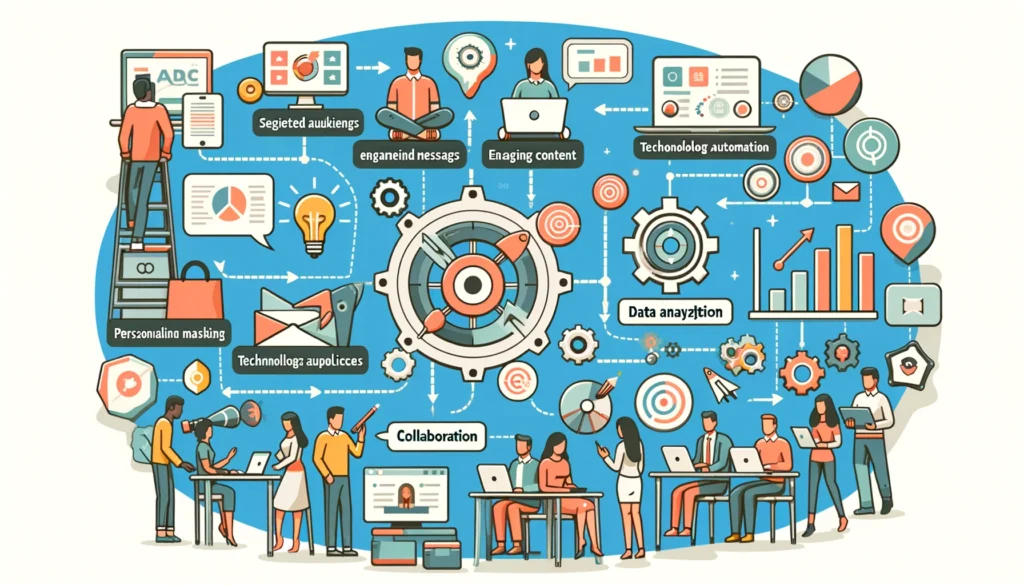
How to Build a University Social Media Strategy- Archer Education
Archer Education
https://www.archeredu.com/hemj/university-social-media-strategy
Synopsis
In this article, the author discusses the importance of developing a social media strategy for universities and provides a step-by-step guide on how to create an effective plan. The author emphasizes that a well-defined strategy can help universities engage with their target audience, build brand awareness, and improve recruitment efforts. The article highlights the key elements of a successful social media strategy, including setting goals, identifying target audience demographics, creating engaging content, and utilizing various social media platforms. The author also provides examples of universities that have successfully implemented social media strategies and offers practical tips for measuring the success of these efforts.
Background Resources
- Various social media platforms (e.g., Facebook, Twitter, Instagram, LinkedIn)
- Social media analytics tools
Noteworthy Positions
- Developing a social media strategy is essential for universities to effectively engage with their target audience and improve recruitment efforts.
- It is crucial to identify the target audience and understand their demographics and interests to create tailored content.
- Collaboration between different departments within the university, such as admissions, marketing, and alumni relations, is necessary for a coherent social media strategy.
- Keeping up with the ever-evolving social media landscape and staying knowledgeable about new platform features and trends is key to success.
Summary & Takeaways
- Developing a social media strategy is crucial for universities to engage with their target audience, build brand awareness, and improve recruitment efforts.
- Key steps in creating an effective strategy include setting goals, identifying the target audience, creating engaging content, and utilizing various social media platforms.
- Collaboration between different departments within the university is essential for a cohesive social media strategy.
- It is important to measure the success of social media efforts using analytics tools and adapt the strategy accordingly.
- Keeping up with the latest trends and features in social media is necessary for a successful university social media strategy.
🎓 Creating a social media strategy is crucial for universities to engage students, boost brand awareness, and enhance recruitment. Learn how. #HigherEd #SocialMediaStrategy 📚
Tweet
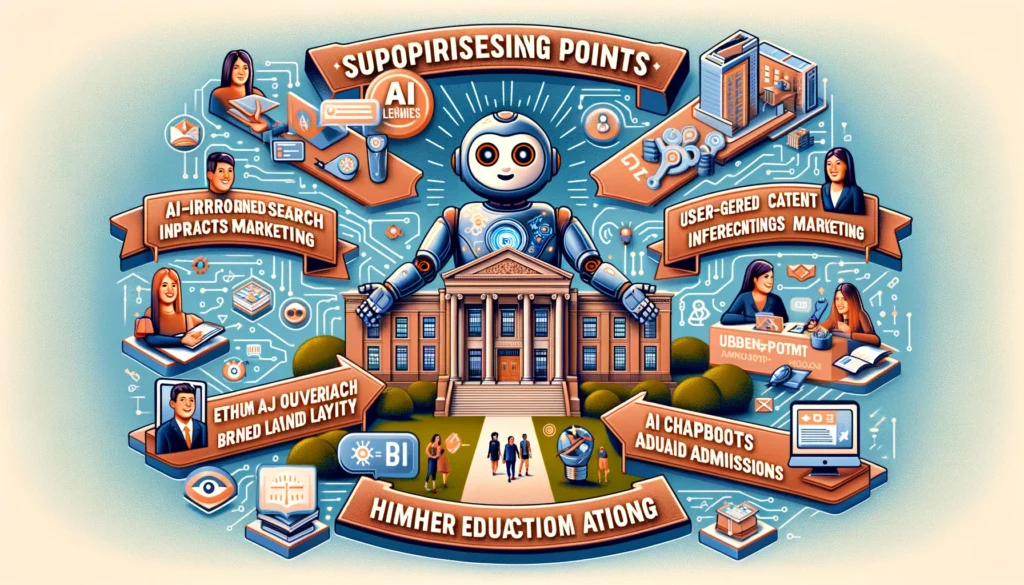
Is AI-driven search a game-changer for universities? | Volt
Volt
https://voltedu.com/marketing-branding/is-ai-driven-search-a-game-changer-for-universities
Synopsis:
- The article explores the potential impact of AI-driven search on universities and their marketing strategies.
- It discusses how universities can leverage AI technology to enhance the student search experience, improve targeting and personalization, and optimize marketing efforts.
- The author explains how AI-powered search algorithms can process vast amounts of data and provide more accurate and relevant search results for prospective students.
- The article cites examples of universities that have already adopted AI-driven search, such as Northeastern University and Purdue University.
- It highlights the benefits of AI-driven search, including increased efficiency, cost savings, and improved student engagement.
- The author also acknowledges potential challenges and concerns, such as privacy issues and the need for human intervention to ensure ethical and unbiased search results.
- The article emphasizes the importance of universities staying updated on AI advancements and adapting their marketing strategies accordingly.
Background Resources:
- No specific background resources are mentioned in the article.
Noteworthy Positions:
- The author takes a positive stance on the potential of AI-driven search to revolutionize university marketing.
- The article highlights the advantages of AI technology while acknowledging the need for ethical considerations and human oversight to maintain fairness and privacy.
Summary and Takeaways:
- AI-driven search has the potential to significantly impact university marketing strategies by improving the student search experience and providing more accurate and personalized results.
- Universities that adopt AI-powered search algorithms can benefit from increased efficiency, cost savings, and improved student engagement.
- While AI-driven search offers many advantages, universities must consider ethical factors, privacy concerns, and the need for human intervention to ensure fairness and unbiased results.
- Staying updated on AI advancements and adapting marketing strategies will be crucial for universities to leverage the potential of AI-driven search effectively.
🔍🎓 Can AI-driven search transform university marketing? 🤔 Discover AI’s impact on student search, targeting, and personalization while ensuring ethics. #AI #HigherEd #Marketing
Tweet
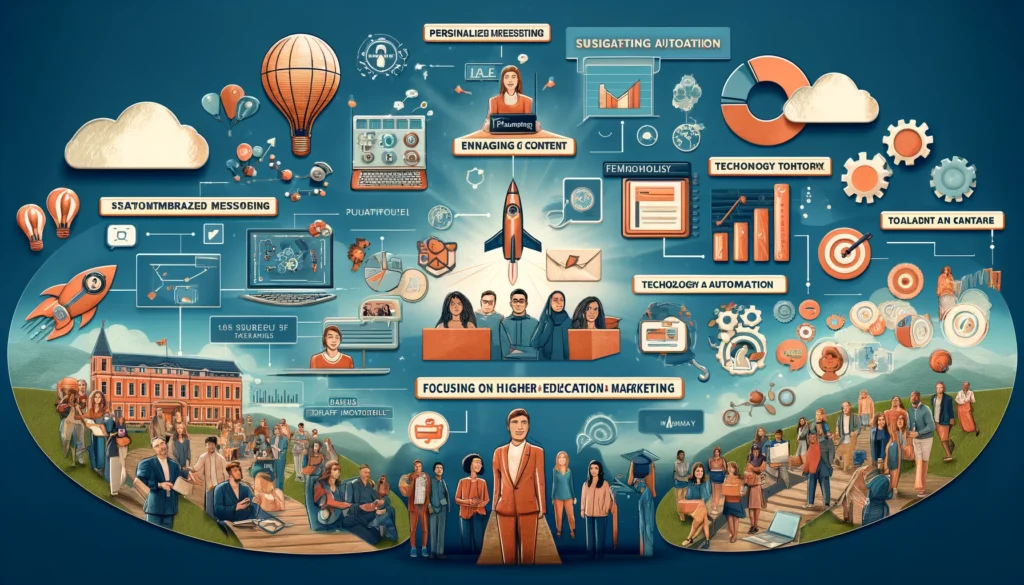
The AI-Powered Student Engagement Platform
Element451
https://element451.com/blog/partner-network
- The article discusses the benefits of building a partner network for higher education institutions.
- It emphasizes the importance of collaboration and strategic partnerships in expanding reach and achieving goals.
- The author suggests that partner networks can help universities attract and retain students, diversify revenue streams, and enhance the student experience.
- The article provides examples of successful partnership initiatives, such as co-marketing campaigns, joint events, and shared resources.
- It highlights the role of technology in facilitating partner network management and communication.
- The author encourages higher education institutions to prioritize the development of partner networks to stay competitive in the evolving landscape of education.
Takeaways:
- Collaborating with strategic partners can bring diverse expertise and resources to higher education institutions.
- Partner networks can help universities attract students, diversify revenue, and enhance the student experience.
- Technology plays a crucial role in managing and communicating with partner networks.
💡 Building a strong partner network can help universities thrive! #HigherEdPartnerships 🤝💼
Tweet
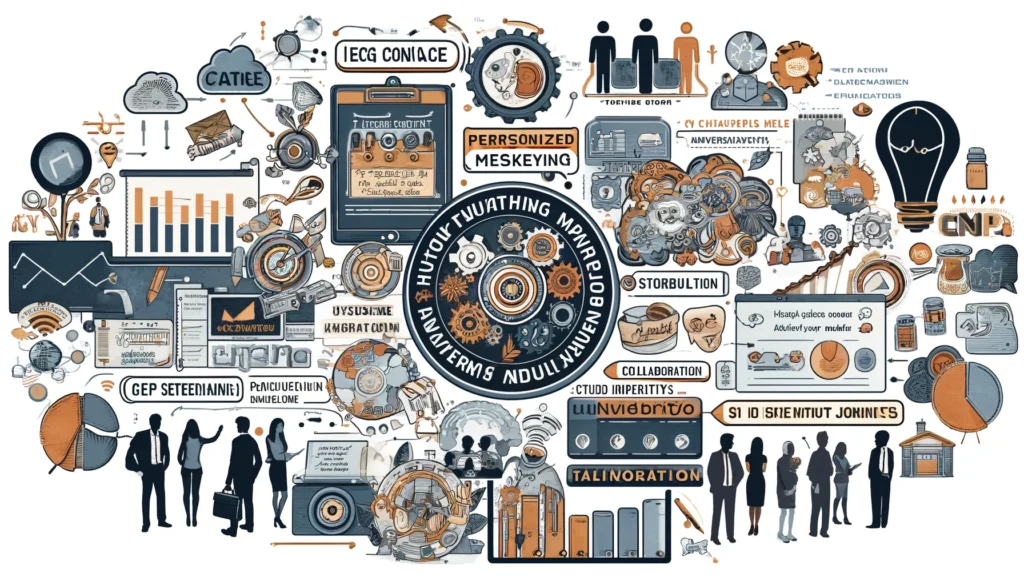
UNINCORPORATED Launches Hansei, an AI-Powered Chatbot for Higher Education
unincorporated
https://blog.unincorporated.com/un-launches-ai-powdered-chatbot-hansei
Synopsis:
- The United Nations (UN) has recently launched a new chatbot called “Hansei” that is powered by artificial intelligence (AI).
- Hansei is designed to provide users with insights and analysis on a variety of topics related to the UN’s work and initiatives.
- The chatbot utilizes natural language processing (NLP) and machine learning algorithms to understand and respond to user queries in a conversational manner.
- Users can interact with Hansei through popular messaging platforms like Facebook Messenger, WhatsApp, and Telegram.
- The UN hopes that Hansei will enhance accessibility and engagement with its work by providing a user-friendly and informative platform for conversation.
Noteworthy positions:
- The author highlights that the launch of Hansei reflects the UN’s efforts to embrace innovative technologies like AI to improve their communication and engagement with the public.
- The article emphasizes the potential of AI-powered chatbots like Hansei to democratize access to information and make it more engaging and accessible to a wider audience.
Summary and takeaways:
- The UN has introduced an AI-powered chatbot named Hansei to facilitate conversation and provide insights on the organization’s initiatives.
- Hansei utilizes AI technologies like natural language processing and machine learning to respond to user queries in a conversational manner.
- By incorporating popular messaging platforms, the UN aims to increase accessibility and engagement with its work.
- This initiative reflects the UN’s commitment to embracing innovative technologies to improve communication and transparency.
- AI-powered chatbots like Hansei have the potential to democratize access to information and make it more engaging and user-friendly.
🌐 The UN launches Hansei, an AI chatbot, to boost accessibility and engagement. 📲💬 Explore UN initiatives via messaging platforms. #AI #UN #Chatbot
Tweet
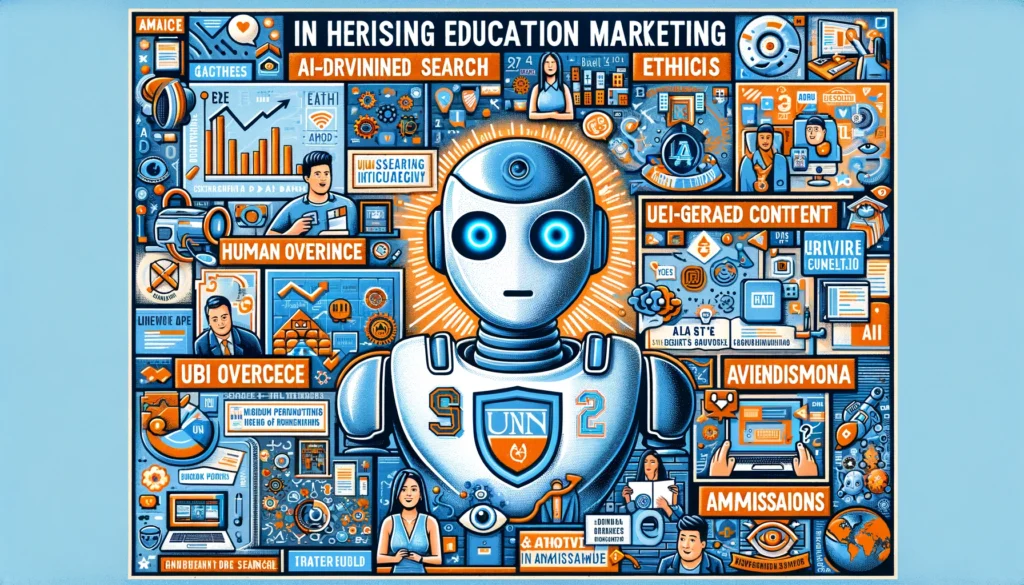
How to Build Student Personas into Your Marketing | Carnegie—Higher Ed Marketing & Enrollment
Carnegie—Higher Ed Marketing & Enrollment
https://www.carnegiehighered.com/blog/using-student-personas-in-marketing
Synopsis:
In this article, the author discusses the importance of using student personas in marketing strategies in higher education. Student personas are fictional representations of target students that reflect their goals, motivations, preferences, and challenges. By creating student personas, universities and colleges can effectively tailor their marketing efforts to specific audience segments. The author provides a step-by-step guide on how to create student personas and highlights the benefits of using this approach, such as higher engagement and improved ROI. Various examples and case studies are cited throughout the article, demonstrating the effectiveness of using student personas in marketing campaigns.
Background Resources:
- The author references the book “Marketing 4.0: Moving from Traditional to Digital” by Philip Kotler, Hermawan Kartajaya, and Iwan Setiawan as a resource for understanding modern marketing strategies in higher education.
Unique/Noteworthy Positions:
- The author emphasizes the importance of conducting thorough research to gather data and insights about students to create accurate and realistic student personas.
- The author suggests that universities should regularly update and refine their student personas based on new findings or changes in student behaviors and preferences.
- The author advocates for the integration of student personas into all marketing efforts, including website design, content creation, social media campaigns, and personalized communication.
Summary with Takeaways:
- Creating student personas in higher education marketing allows universities and colleges to effectively target and engage specific audience segments.
- Thorough research and data collection are essential to ensure accurate and realistic student personas.
- Student personas should be regularly updated and refined to reflect changing student behaviors and preferences.
- Integrating student personas into all marketing efforts leads to higher engagement and improved ROI.
🎓🎯 Boost Higher Ed marketing with student personas! 📚🎯 High engagement & better ROI through personalized targeting. #HigherEdMarketing #PersonalizedAds
Tweet

How User-Generated Content Builds Brand Loyalty in Higher Education – Hannon Hill
hannonhill.com
Synopsis:
- User-generated content (UGC) is an effective strategy for building brand loyalty in higher education institutions.
- UGC includes content created by students, alumni, and faculty members, showcasing their experiences and perspectives.
- UGC fosters authenticity, community engagement, and trust among prospective students and alumni.
- Research suggests that UGC influences decision-making, improves recruitment efforts, and strengthens alumni relationships.
- Utilizing social media platforms, contests, and campaigns can encourage the creation and sharing of UGC.
- Examples of successful UGC campaigns in higher education are presented.
Background Resources:
- Research on the impact of user-generated content in marketing and consumer behavior.
- Case studies on the use of UGC in higher education institutions.
Noteworthy Positions:
- The author emphasizes the importance of leveraging UGC to build a strong brand and cultivate loyalty.
- UGC is seen as a powerful tool for prospective student recruitment and alumni engagement.
Summary:
User-generated content plays a significant role in developing brand loyalty in higher education. Authentic storytelling from students, alumni, and faculty members showcases experiences and builds trust. UGC influences decision-making, attracts prospective students, and strengthens alumni relationships. Leveraging social media platforms and creative campaigns can encourage UGC creation and sharing.
Takeaways:
- User-generated content fosters authenticity, trust, and community engagement.
- UGC influences decision-making and improves recruitment efforts.
- Social media platforms and campaigns are effective tools for encouraging UGC.
💡 User-generated content in higher education creates authentic connections, influences decisions, and strengthens brand loyalty. #UGC #HigherEd 🎓💙
Tweet
